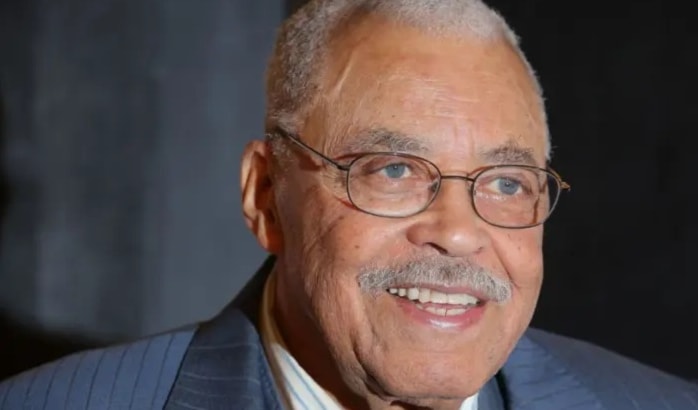Renowned actor, voice of Darth Vader, James Earl Jones dies at 93
James Earl Jones' rise to fame was shaped by struggles in his early childhood, eventually discovering and pursuing his passion for acting.
-

Actor James Earl Jones attends the 'The Gin Game' Broadway opening night after party at Sardi's in New York City on October 14, 2015. (AFP)
Iconic and renowned actor James Earl Jones, who combated racial discrimination and a severe stutter, passed away at 93.
The actor's agent, Barry McPherson, confirmed Jones died on Monday morning in his New York home in the Hudson Valley region.
Jones is known for his voice acting, taking on the roles of Mufasa in The Lion King and Darth Vader from the Star Wars series. He is also the commanding voice of CNN, announcing "This is CNN" during the news outlets' breaks.
“The need to storytell has always been with us,” Jones told The Associated Press in 2015. “I think it first happened around campfires when the man came home and told his family he got the bear, the bear didn’t get him.”
The legacy of James Earl Jones
Jones's legacy kicked off in 1965 when he became one of the first African American actors in a recurring role in the daytime drama As the World Turns, working on the soap opera until the 80s.
The actor has been commended and appreciated for his versatile roles, receiving two Emmys, a Golden Globe, a Grammy for his 1977 performance on the Great American Documents audiobook, two Tony Awards, the National Medal of Arts, and the Kennedy Center Honors. He was also given the honorary Oscar in 2011, and a special Tony award for lifetime achievement in 2017.
“If you were an actor or aspired to be an actor, if you pounded the pavement in these streets looking for jobs, one of the standards we always had was to be a James Earl Jones,” Samuel L. Jackson once stated.
Jones' range was apparent through the various roles he took on during his long career. In Field of Dreams he was a reclusive writer who was drawn into the spotlight, contrasting his role as a South African minister in Cry, the Beloved Country.
The actor was also a shining star on Broadway, making his debut in 1958 in Sunrise at Campobello. Jones would later be awarded Tony Awards for his performances in The Great White Hope (1969) and Fences (1987).
His rise to fame was especially shaped by The Great White Hope, in which he played the role of the first Black heavyweight boxing champion Jack Johnson. This Pulitzer Prize-winning Broadway play represented the 20th-century struggles of racism in America.
In 1972, Jones reassumed the role in the film adaptation, receiving a Best Actor nomination at the Academy Awards.
“You can’t think of an artist that has served America more,” actor and director Kenny Leon told AP. “It’s like it seems like a small act, but it’s a huge action. It’s something we can look up and see that’s tangible.”
Jones continued performing on Broadway, partaking in the recent productions of Cat on a Hot Tin Roof, Driving Miss Daisy, The Iceman Cometh, and You Can’t Take It With You.
The actor also performed renditions of William Shakespeare's plays at the New York Shakespeare Festival Theater, fulfilling roles in Othello, Macbeth, and King Lear.
Broadway's Cort Theatre was renamed in honor of the actor in 2022, featuring a ceremony composed of Norm Lewis' performance of Go the Distance, Brian Stokes Mitchell singing Make Them Hear You, and speeches given by Mayor Eric Adams, Samuel L. Jackson, and LaTanya Richardson Jackson.
The resilient life of Jones
Jones was born on January 17, 1931, in a shack in Arkabutla, Mississippi.
Robert Earl Jones, the actor's father, abandoned his mother before his birth to pursue his career as a boxer and, later, an actor.
At the age of 6, Jones' mother took him to live with his grandparents at their farm in Michigan, ultimately adopting and raising the actor.
“A world ended for me, the safe world of childhood,” the actor wrote in his autobiography Voices and Silences.
“The move from Mississippi to Michigan was supposed to be a glorious event. For me it was a heartbreak, and not long after, I began to stutter," he added.
Stemming from his embarrassment to speak, Jones developed a speech impediment resulting in him remaining virtually mute for years. He would communicate with his teachers and peers through handwritten notes.
Donald Crouch, Jones' high school teacher, demanded he read one of his poems aloud in class upon learning the boy wrote poetry. He gave a flawless performance.
“I could not get enough of speaking, debating, orating — acting,” Jones recounted in his book, referring to the work he and his teacher did to restore his normal speech.
Jones pursued his passion for acting at the University of Michigan after failing his pre-med exam.
He moved in with his father in New York, enrolling in the American Theater Wing program for young actors. Both father and son waxed floors to financially sustain themselves while looking for acting jobs.
The actor attributed his stutter as one of the reasons he did not become a political activist. However, he hoped that he could shape people's minds through his art.
“I realized early on, from people like Athol Fugard, that you cannot change anybody’s mind, no matter what you do,” he told AP. “As a preacher, as a scholar, you cannot change their mind. But you can change the way they feel.”

 5 Min Read
5 Min Read








